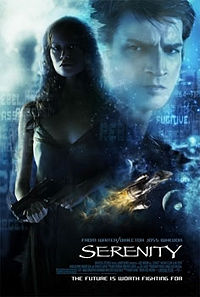Yup Yup. James T. Kirk and Spock have found the fountain of youth. 11th time’s the charm.
Reviews are coming in, and it looks like Lost creator J.J. Abrams hit this one out of the park. I’ve never been into Lost, but my guess is that Abrams gave the Star Trek franchise exactly what it needs: A bit more action, a lot more sex appeal (Even I have a sensitive man-crush on Chris Pine, the new Kirk), and a lot less of the “Ph.D.-in-Astrophysics-Required” technobabble that dominates a lot of Star Trek plots. I won’t be able to see it until Sunday morning (wanna come?), but stay tuned for my review in the comments section of this post.
Yes, by the way, I am a Buddhist Geek. More-so than the actual Buddhist Geeks (your kung fu is weak, Buddhist Geeks. You are no match for my geekery. Let’s see how you handle my shaolin five elements style!). I have always been a fan of the SciFi genre, which might seem like a
weird thing for someone who’s trying to learn how to dwell more and
more in the present moment. It all started my Freshman year of high
school–when I was too short, too shy and too unschooled at The Art of
9th Grade Popularity (see the collected works of Lao Tzu) to crack the
walnut of high school cliques–that me and my Dad (check out his upcoming guest lecture at the Interdependence Project) would spend Saturday
nights with takeout chinese marveling at the strange astrophysical melodrama of Star Trek: The Next Generation. We invited others to join us, but no one was into it.

I know Jean Luc, I know.
Since then favorites have included Bladerunner (of course), Star Wars (though not maniacally), and Serenity/Firefly, both the shortlived tv show and the excellent movie, neither of which got the attention they ever deserved. Battlestar Galactica was great, but the series lost steam at the end like the Little Engine That Couldn’t.
I think the SciFi genre allows us to explore relationships in a
visionary setup, and therefore is a perfect template to parallel and
examine political, cultural, spiritual, and personal ideals in an
otherworldly landscape. The best scifi creates an internally coherent
narrative universe, but one which reflects back upon our own. The worst
scifi does this, and tells you that it’s doing this every two minutes. The very best
scifi does it so much that it becomes a caricature of itself, like Star
Trek: TNG.
I don’t see why a Buddhist can’t get down with that kind of fantasy. Sometimes the present moment is best understood by creating an alternate universe. Go figure.
So I will declare it right now: it is my intention, at some point, to
write a work of Buddhist inspired Science Fiction, either for the
screen, the stage, or just the page. Plot ideas welcome in the comments section below.



